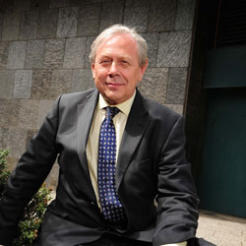The Charities Sorp Committee has confirmed that all charities will be required to adopt a Statement of Recommended Practice based on the FRS 102 accounting standard.
The decision will apply for reporting periods beginning on or after 1 January 2016.
The Charities Sorp is the set of specialist accounting rules which sets the framework for charities' annual reports and accounts. The Sorp interprets national accounting standards set by the Financial Reporting Council.
There are currently two Sorps, based on two different standards. One standard, FRS 102, is intended for mid-sized organisations which need an audit but are not publicly listed. The other, the Financial Reporting Standard for Smaller Entities, or FRSSE, is intended for smaller bodies. However the FRC has now decided to replace the FRSSE.
As a result the Sorp Committee issued a consultation in the summer on scrapping their FRSSE Sorp option.
Near-unanimous support
The minutes of the Sorp Committee’s 14 October meeting have now been released, and they reveal that 23 out of 24 respondents to the consultation were supportive of moving to a single unified Sorp.
Speaking to Civil Society News, the Charity Commission’s former head of accountancy policy Ray Jones (pictured) said: “For those that read the consultation over the summer, this decision by the Sorp Committee is to be expected.
“That said, there is a lot of uncertainty about what was going to replace the FRSSE Sorp and this insight may well prompt charities currently adopting the FRSSE to move a year earlier to the FRS 102 based Sorp.”
Frank Learner, owner of Greengage Consultants, told Civil Society News that there are a number of considerations for charities which are eligible for the FRSSE Sorp.
“Are there are any critical disclosure issues for this year that the ‘kinder’ FRSSE Sorp will not require?" he said "If not, then selecting the FRS 102 Sorp will avoid producing accounts under three different Sorps in three consecutive years.”
The changes also mean that the definition of larger charities under the Sorp will apply to those with income above £500,000, despite the overall audit threshold rising to £1m in March this year.









